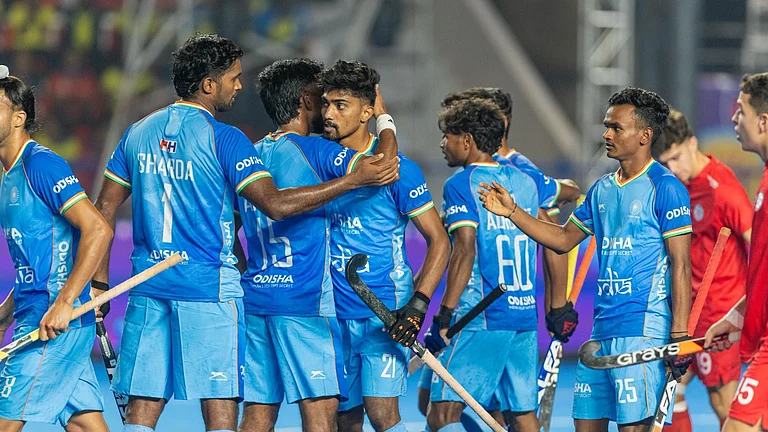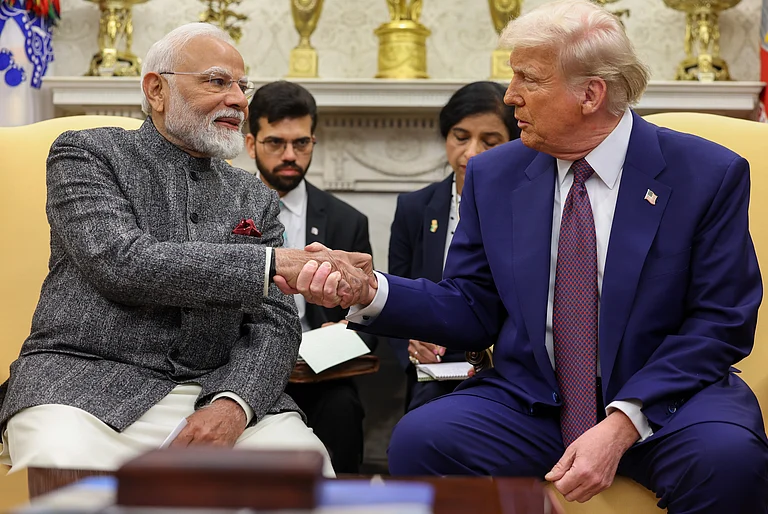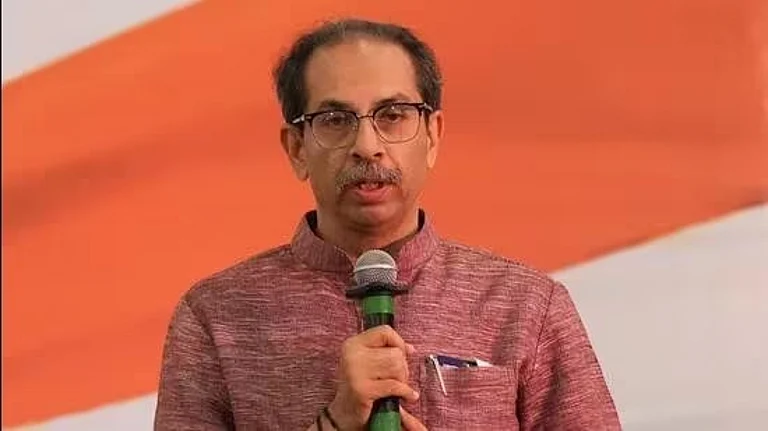In global history, what is distinctive about India’s past is its ability to have always transformed divisions into diversity. This is the essence of the health of Indian democracy as well. Indian democracy is rooted in the diversity of our region, culture, religion and ideology, which had informed the compulsions of Indian politics.
In the recent past, however, more divisive political narratives have created a fractured concept of a ‘new India’. As we celebrate another year of Independence, we are once again left wondering: What is the idea of India? What moves the world’s largest democracy?
If one is unwrapping Indian democracy, the first layer to unfold is federalism. In an article titled ‘The Indian Diversity’ in Outlook’s 28 February 2022 issue called Altered Federalism, Tanvir Aeijaz writes about how the makers of the Indian Constitution agreed upon a sui generis federal architecture of power-sharing and instituted a federal framework for the electoral response to the overarching centralised representative democracy. Tracing the federal process from Independence, keeping in hindsight the challenges of British centralised governance, he writes about how state elections have been assertions for accommodation and legitimation of the very principles of federalism as enshrined in the Constitution.
The federal process, since Independence, has also had a roller-coaster journey, altering multiple times around the demands of states’ autonomy and the actual participatory, legislative and policy pitches to the dynamics of everyday political life. The question of federalism re-emerged when the BJP government pitched the concept of ‘One Nation, One Election’.
The concept of ‘One Nation’, however, was not limited to elections for there have been instances to promote one culture and religion too. The question arises then, about the idea of secularism which relegates religion to the private space and which is written in the preamble to our Constitution?
“Secularism was one of the most elaborately debated issues by the framers of the Indian Constitution and its meaning oscillated between procedural justice to religious minorities to ‘principled distance’ between religion and politics,” says Ajay Gudavarthy in an article titled ‘Out Of Sync’. Since the beginning of discussions around constitutional rights, there have been concerns around protecting the fundamental rights of religious minorities, especially in the light of Partition. It was burdened by the imperatives of protecting cultural identities that went beyond religion, on the one hand, and carrying out necessary ‘social reform’, on the other.
Today, the paradox extends to the question of rituals and if the idea of secularism – caught between a deeply religious citizenry and a religion-driven polity – is facing threat both as an ideal and as a practice.
Arguing that secularism is a political project in an article titled ‘The Great Indian Paradox’, in Outlook’s issue called The Secularism Question, Ashutosh Bhardwaj states that even Indira Gandhi, who inserted the word ‘secular’ in the Preamble to the Constitution, had been visiting and consulting godmen. Since Gandhi, he adds, politicians across parties have turned to religion in their public life, undermining the ideal of a secular state.
However, even as the state’s engagement with religion remains one of the long-standing conflicts in the democratic experiment, the political dominance of the Hindutva brand since the 2014 elections has put into question the viability of the nation’s secular tradition and its commitment to diversity, notes SY Qureshi. “Constitutional secularism is of immense import to our notions of citizenship, nationality and civic freedom,” he writes.
As we observe the 78th Independence Day, the need to protect the delicate moral fabric of our republic against elements of hate and fear, both in speech and in action, has become more pertinent to ensure the great values of non-violence, equality and communal solidarity built by our founding fathers. As Bhardwaj writes, we must remember that the book by which we rule our nation should not be any religious epic or revelation, but our extraordinary Constitution that is secular to the core.


























